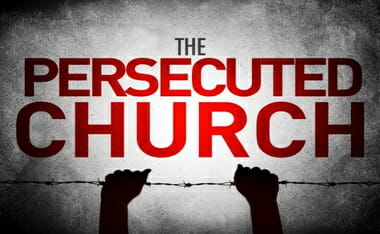Here is a visual version w/Video Added:
There is a correction to a misapplied quote at around the 23:00 mark [and after]. I attributed two-separate quotes to a single person. Here is the corrected attribution:
- “Everyone’s still reeling from the decision,” Marylou Sudders, executive director of the Massachusetts Society for the Prevention of Cruelty to Children (MSPCC), said yesterday.
- “Ultimately, the only losers are the kids,” said Maureen Flatley, a Boston adoption consultant and lobbyist.
- Take note as well that I designated the geographical home of the Danbury Baptist’s as the state of Virginia. In fact, they hailed from Connecticut. [Around the 25:40 mark].
In this talk back-and-forth about some recent Christian based movies [like “Persecuted” and “God’s Not Dead“] frank discussion about some real world examples of attacks on the faith are exemplified.
While “persecution” is more intense in other parts of the world, the beginnings of the battle for a few decades now here in America are an important front to the battle to keep secular thinking at bay. Secularism looks to subvert and replace the Judeo-Christian ethos as the predominate religion/worldview, and has succeeded in many places to do so.
Why is this Battle important? Especially in America? One reason is the influence and impact we have and have had on the world in respects to creating a maximum amount of freedom in the history of the world, as well as protecting those freedoms. For instance, Dr. Grudem points out the following:
Although there were some forms of democratic government in local areas in ancient and medieval history (such as ancient Athens), when the United States began as a representative democracy in 1776, it could be called the “American experiment,” because there were at that time no other functioning national democracies in the world. But after the founding of the United States, and especially in the twentieth century, the number of functioning national democracies grew remarkably. The World Forum on Democracy reports that in 1950 there were 22 democracies accounting for 31% of the world population and a further 21 states with restricted democratic practices, accounting for 11.9% of the globe’s population. Since the turn of the century, electoral democracies now represent 120 of the 192 existing countries and constitute 58.2% of the world’s population.
Therefore, when people today complain to me that they don’t want to get involved in politics because they think that politicians are too corrupt (or arrogant, greedy, power-hungry, and other forms of being “unspiritual”), I want to remind them that although democracy is messy, it still works quite well, and all the alternative forms of government are far worse. We should be thankful for those who are willing to be involved in it, often at great personal sacrifice.
Wayne Grudem, Politics According to the Bible (Grand Rapids, MI: Zondervan, 2010), 108-109.
So to stay in the fight, becoming a warrior for the Christian worldview by expressing it well in thought and deed, is key to keeping the West “alive.”
